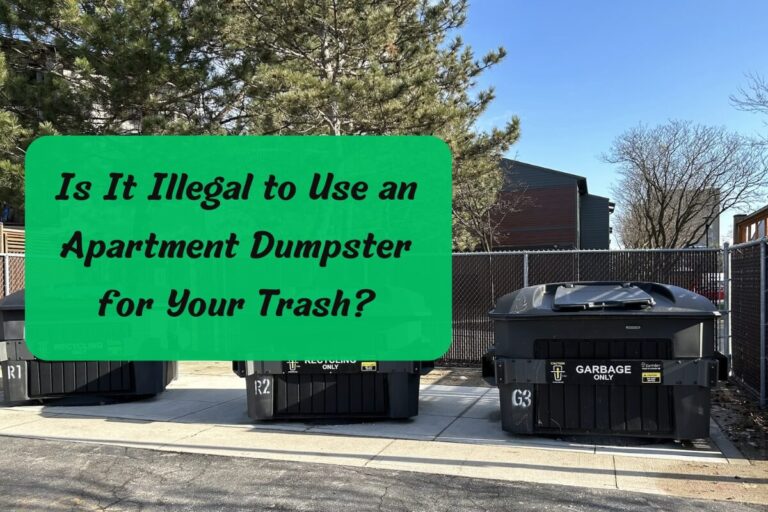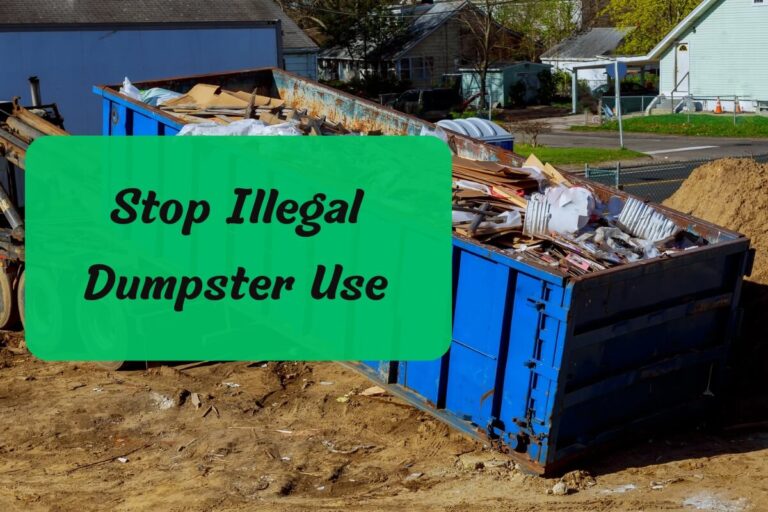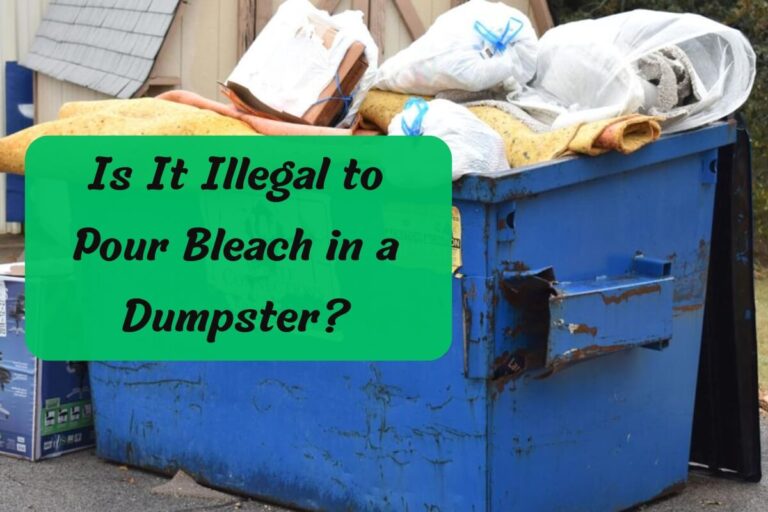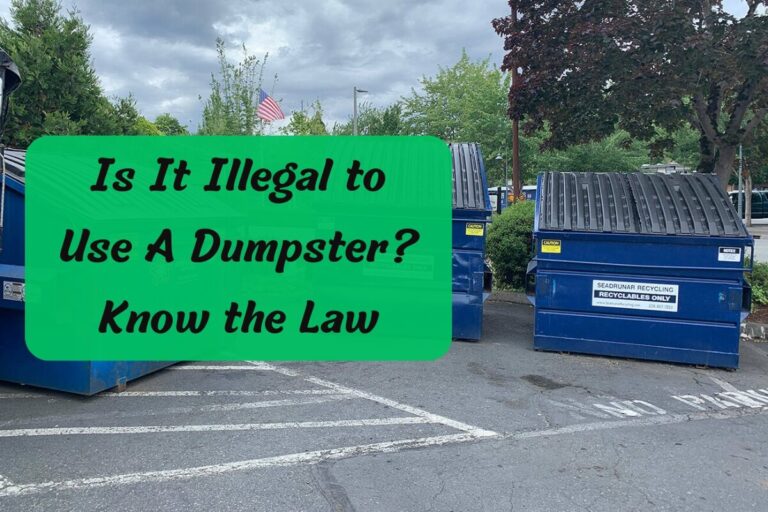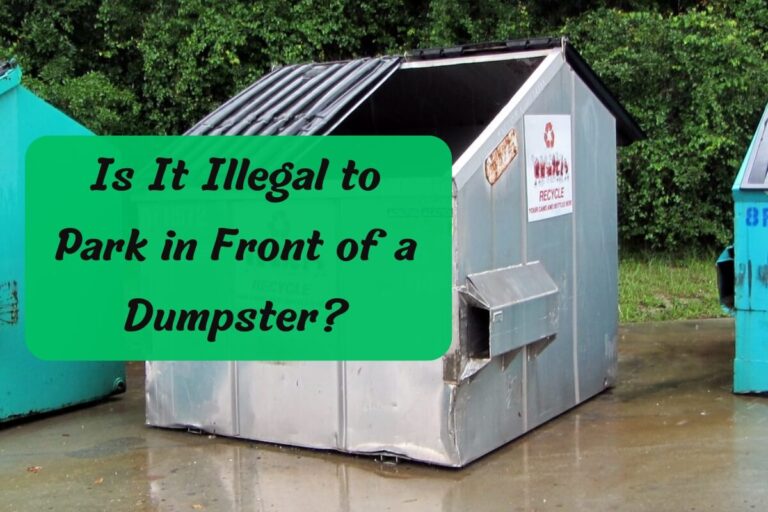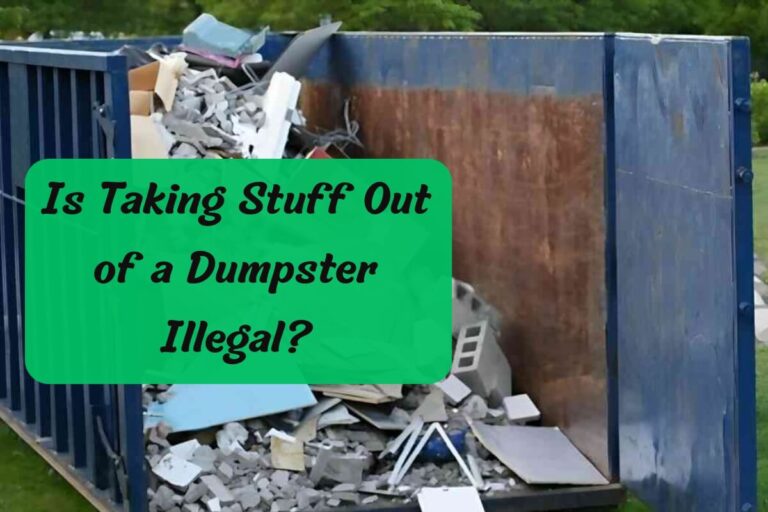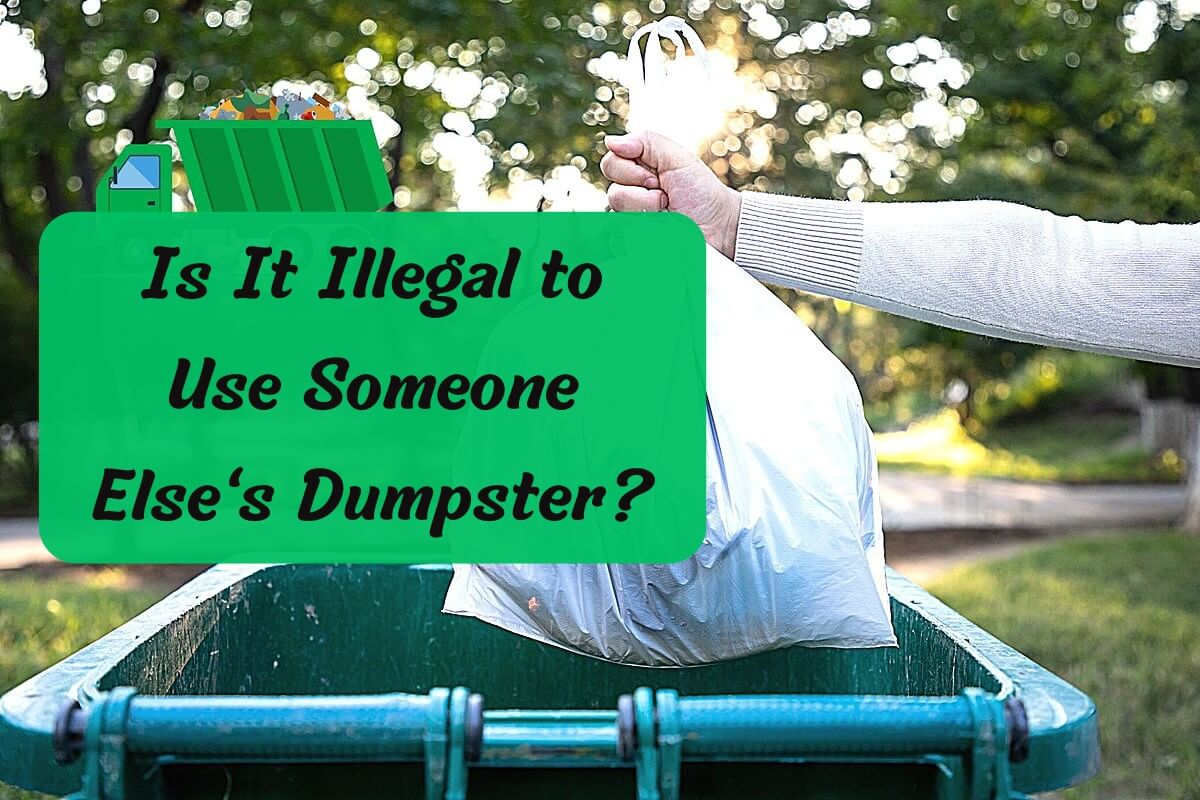
Thinking of tossing your trash in a nearby dumpster on someone else’s property? Think again! Using someone else’s dumpster without permission is illegal dumping, and it can land you in legal trouble. Let’s explore the laws, penalties, and ways to avoid this issue while respecting private property rights.
Understanding Illegal Dumping
Illegal dumping refers to the act of disposing of waste or materials in an unauthorized manner, typically on someone else’s property or public spaces without permission. This includes activities such as:
- Tossing trash bags or debris into someone else’s dumpster
- Leaving furniture, appliances, or construction materials on vacant lots or roadsides
- Dumping hazardous materials like paints, oils, or chemicals in unapproved locations
Illegal dumping is a punishable offense because it raises concerns about public health, environmental pollution, and private property rights. It can also lead to costly cleanups and damage to ecosystems.
Is Using Someone’s Dumpster Without Permission Illegal?
The short answer is yes, using someone else’s dumpster without their explicit permission is generally considered illegal dumping. However, the specific laws and regulations vary by state and municipality.
In most areas, disposing of waste in a dumpster on private property without the owner’s consent can be prosecuted as a misdemeanor offense. This is typically classified as theft of services or illegal disposal of solid waste.
For example, in Texas, using someone else’s dumpster without permission carries the same penalties as illegally dumping the same amount of solid waste, as outlined in the Texas Penal Code 31.04. Similarly, in New York, dumping in someone else’s dumpster is usually considered a misdemeanor, with potential fines ranging from $4,000 to $18,000 in New York City.
Consequences of Illegal Dumping in Someone’s Dumpster
While it may seem harmless to toss a small bag into someone else’s dumpster, the consequences can be severe and far-reaching. Here are some potential consequences of illegal dumping in someone else’s dumpster:
- Filling up the dumpster: If you overfill someone’s dumpster with your waste, the owner may be forced to rent an additional dumpster, incurring extra costs.
- Exceeding weight limits: Most dumpster rental companies have weight limits in place. If your illegal dumping causes the dumpster to exceed this limit, the owner may face additional fees.
- Dumping hazardous materials: If you dispose of hazardous materials like paints, chemicals, or motor oil in someone else’s dumpster, the owner may be responsible for costly specialized disposal or cleanup processes.
- Legal troubles: Depending on the severity of the offense, illegal dumping can result in misdemeanor charges, hefty fines, and even potential jail time in some cases.
Dumpsters on private property are for the owner’s or authorized users’ use only. Using them without permission is trespassing and theft of services, which can lead to legal consequences.
Preventative Measures Against Illegal Dumping
To discourage illegal dumping and protect their property, owners can implement several preventative measures:
- Enclosed or fenced areas: Keeping the dumpster within a fenced or enclosed area can make it less accessible to potential dumpers.
- Using a tarp: Covering the dumpster with a tarp and securing it with bungee cords can deter illegal dumping when the dumpster is not in use.
- Avoiding public walkways: Placing the dumpster away from public walkways, alleyways, or high-traffic areas can reduce the temptation for illegal dumping.
- Posting warning signs: Clear “No Illegal Dumping” or “No Trespassing” signs can serve as a deterrent and provide legal backing for enforcement.
- Surveillance and lighting: Installing surveillance cameras or adequate lighting in the area can make potential dumpers think twice before attempting to use someone else’s dumpster illegally.
Alternatives to Using Someone Else’s Dumpster
If you find yourself in need of waste disposal services, it’s essential to explore legal and responsible alternatives to using someone else’s dumpster without permission. Here are some options:
- Rent your own dumpster: Renting a dumpster from a reputable company ensures that you have a legal and designated space for disposing of your waste.
- Utilize municipal waste management services: Many cities and towns offer regular curbside trash and recycling pickup services for residents, as well as designated locations for disposing of larger items or hazardous materials.
- Explore recycling and donation options: Before disposing of items, consider recycling or donating items that are still in usable condition to local charities or organizations.
Choose legal and responsible options to avoid legal troubles and help keep our environment clean and sustainable.
Legal and Ethical Considerations
Beyond the legal implications, using someone else’s dumpster without permission raises ethical concerns. It violates private property rights and can be seen as disrespectful and inconsiderate towards others.
Illegal dumping can also have detrimental environmental impacts, contributing to pollution, degradation of natural habitats, and the potential spread of hazardous materials. By promoting responsible waste disposal practices, we can collectively work towards building a more considerate and law-abiding community.
Final Thoughts
In conclusion, while it may seem tempting to use someone else’s dumpster for convenience, it is generally illegal to do so without the owner’s explicit permission. The consequences of illegal dumping can range from fines and legal troubles to environmental harm and strained relationships within the community.
By understanding the relevant laws, exploring legal alternatives, and implementing preventative measures, we can collectively work towards responsible waste disposal practices that respect private property rights and promote a cleaner, safer environment for all.
Remember, a little consideration and planning can go a long way in avoiding the potential pitfalls of illegal dumping and ensuring a more sustainable future for our communities.

